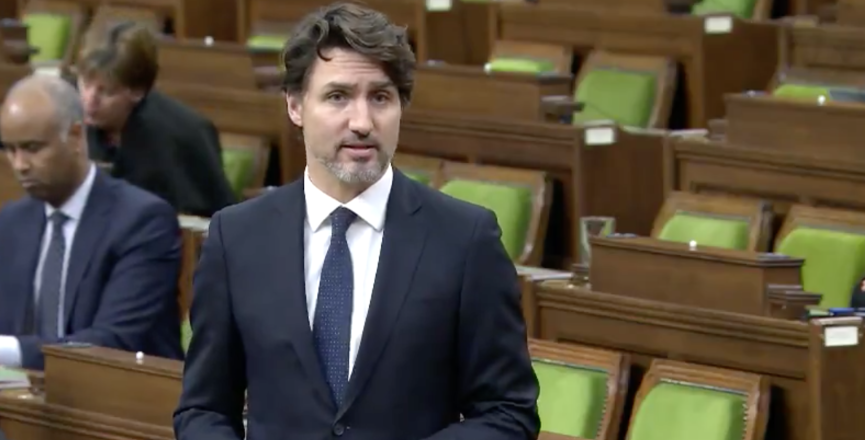This isn’t the first recorded case of Canadian Coalition Anxiety Syndrome (CCAS). That came in 2008, when the Harper minority government declared an outbreak among parties conspiring to replace it. Its oddity is its restriction to Canada. Coalitions are common elsewhere but aren’t seen as pathological.
In fact, elsewhere they’re seen as a sign of democratic health, while fear of coalitions—this “attack on our freedom,” said Pierre Poilievre—is a morbid political symptom. “We woke up to a nightmare,” said Patrick Brown. No, in Ukraine you wake up in a nightmare, or Yemen. Bloc leader Yves-François Blanchet called it a “false majority.” But with just over 50 per cent of votes last election, it’s a real majority. If such democratic initiatives fluster you, maybe you shouldn’t be a party leader.
When those leaders say this isn’t what Canadians voted for, I’d say it’s exactly what they voted for—if you aggregate the vote totals. Parties have policies: when you vote for them, you vote for those. The true democratic disorder is when a party receives around 40 per cent of votes but gets 60 per cent of seats in Parliament, and then imposes their will on the country as if they’d received a true mandate. That’s delusional, yet it’s become our political normal. The last time a majority of seats accompanied a majority of votes was in 1984.
It always bothered me when the Liberals won a majority of seats with less than half the vote, but I comforted myself thinking: if you add the votes for the NDP, Greens and even Bloc (minus its nationalist reservations) then the Liberals very roughly represent the aspirations of all those—i.e. activist government programs that are required to fill the needs of a small population spread over a vast land mass. In fact I’ve always considered the NDP a more plausible natural governing party than the Liberals. The mystery was how they managed to not get elected. Maybe this is the Natural Governing Coalition.
Could it lead to a Liberal-NDP merger? Why not? The NDP has no ideology left (they’ve even wiped “socialism” from their constitution) and the Liberals never had any. That might in turn clear the way for a real left alternative, like Québec Solidaire in Quebec after the Parti Québécois shed its social democratic pretensions. Good things happen when you stop faffing around and admit who you really are.
I confess I’m mystified by the panic the word itself, “coalition,” evokes. I’ve always found it poetic, despite its technical air—much like “organize,” when you think about baristas at Starbucks or pickers at Amazon organizing unions to win some justice in their workplaces. In her recent book “What White People Can Do Next,” Emma Dabiri calls for coalition over allyship as the road to Black-white co-operation. She thinks allyship implies something moralistic and patronizing, while coalition “is about mutuality” and “identifying common ground.”
I’m also baffled by the pedantic claim that this isn’t a “real” coalition because the NDP got no cabinet posts. Sorry guys, but we don’t have a language “academy” like France to police word usage. Coalitions are by their nature improvisational and creative, so they don’t follow rule books. They’re also pretty inevitable now, since elections increasingly return minority governments. So get used to it even if it “neuters” (Globe and Mail) our democracy. In fact, the punditry can hardly stomach the process; it’s too outside their box, like election reform, which also reduces them to sputtering. Why should they tolerate a political tactic they didn’t spend decades learning to sound like experts about?
On the bright side, if it’s not a real coalition, or a weak form of one, maybe that’ll help interim Opposition leader Candice Bergen feel a touch less anxious.
Anyway, the coalition’s mild terms such as limited dental care are what normally conservative governments like Germany’s have had in place forever. Calm down then, or take an Ativan, if it’s covered by your private pharmacare.
This article originally appeared in the Toronto Star.




